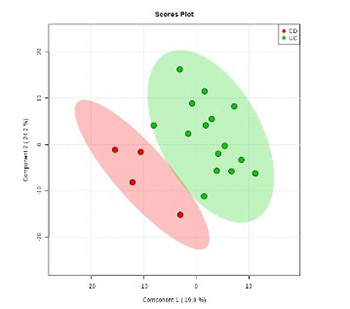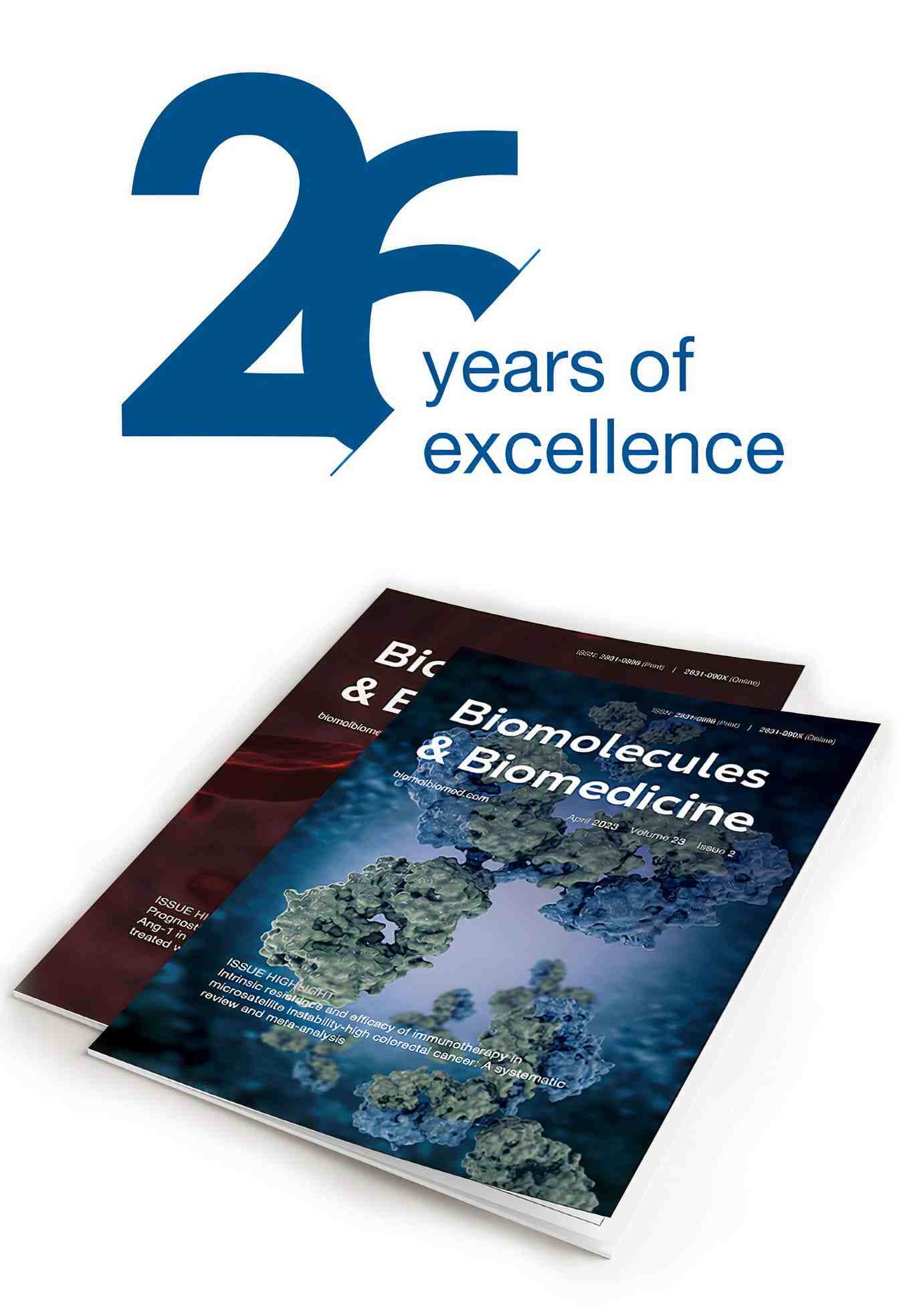The potential of metabolic and lipid profiling in inflammatory bowel diseases: A pilot study
DOI:
https://doi.org/10.17305/bjbms.2019.4235Keywords:
Crohn’s disease, ulcerative colitis, inflammatory bowel disease, IBD, metabolomics, lipidomicsAbstract
Inflammatory bowel diseases (IBDs) are conditions that still pose significant problems. A third of the patients are either misdiagnosed or a proper diagnosis of Crohn’s disease (CD) or ulcerative colitis (UC) cannot be made. We need new biomarkers, so that we can offer patients the best treatment and keep the disease in an inactive state for as long as possible. Alterations in metabolic profiles have been incriminated in the pathophysiology of IBD. The aim of the present study was to identify molecules that could serve as biomarkers for a positive diagnosis of IBD as well as to discriminate UC from colonic CD. Twenty-two patients with active colonic IBD (UC = 17, CD = 5) and 24 age- and gender-matched healthy controls were enrolled. Plasma lipid and metabolic profiles were quantified using ultra-high-performance liquid chromatography combined with mass spectrometry. Univariate and multivariate statistical tests were employed. Six lipid species and 7 metabolites were significantly altered in IBD patients compared to healthy controls, with the majority belonging to glycerophospholipid, linoleic acid, and sphingolipid metabolisms. Five lipid species and only 1 metabolite were significantly increased in UC compared to CD. This preliminary study suggests that lipid and metabolic profiling of serum can become diagnostic tools for IBD. In addition, they can be used to differentiate between CD and UC.
Downloads














